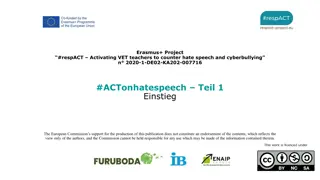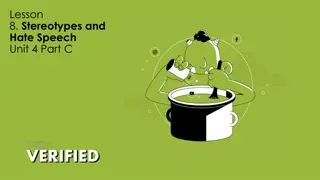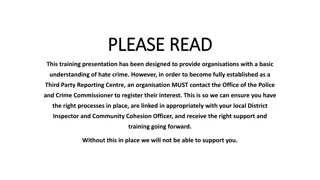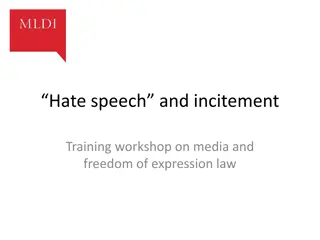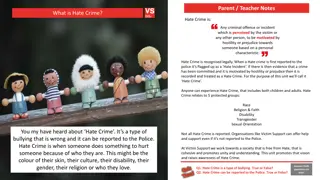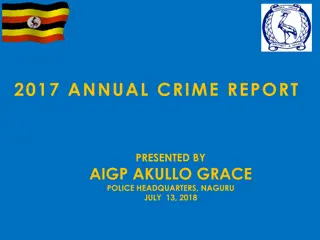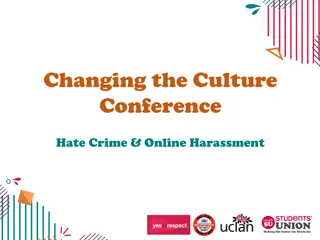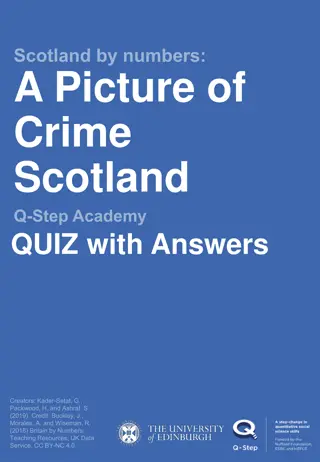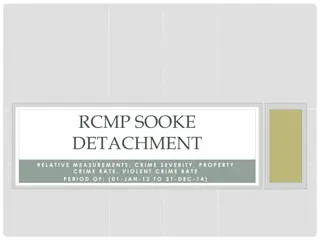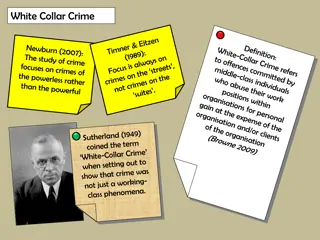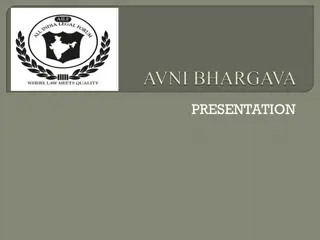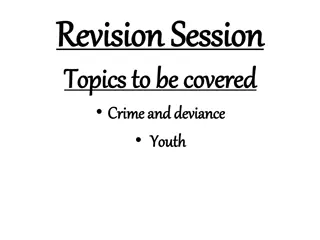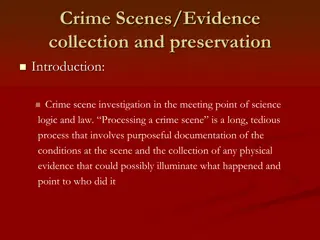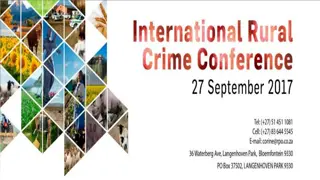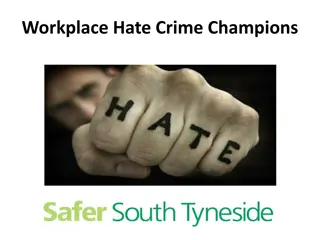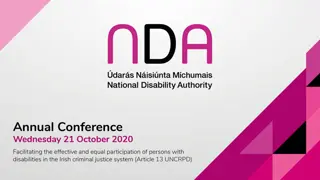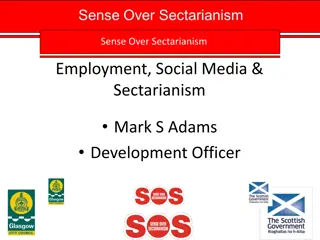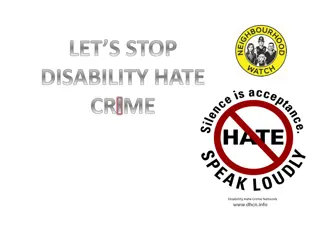Understanding Hate Crime and Its Impact: Real Stories and Information
Hate crime is a serious issue that affects individuals on various grounds such as race, faith, sexual orientation, disability, and gender identity. Real-life stories like Fiona and Frankie's tragic experience and Tommy's brutal attack shed light on the devastating impact of hate crimes. Knowing what hate crimes entail, how they manifest, and the distinction between online and offline hate is crucial in combating this harmful behavior.
Download Presentation

Please find below an Image/Link to download the presentation.
The content on the website is provided AS IS for your information and personal use only. It may not be sold, licensed, or shared on other websites without obtaining consent from the author. Download presentation by click this link. If you encounter any issues during the download, it is possible that the publisher has removed the file from their server.
E N D
Presentation Transcript
Hate Crime Assembly KS3 / KS4 Striving for excellence www.enfield.gov.uk
Why does Hate Crime Matter? True Story Fiona and Frankie Pilkington Frankie had severe learning difficulties. More than a decade of abuse and bullying from local teenagers. Groups of up to 16 young people pelted their home with flour, eggs and stones and shouted abuse every night. Fiona was eventually driven to commit suicide by setting fire to her car while she and Frankie were sitting side by side in the back. I have just given up, she wrote. I am just not cut out to take this much harassment
Why does Hate Crime Matter? In 2018, Tommy was attacked after London Pride. His attackers began by shouting homophobic abuse. Tommy was then hit, he felt his back crack and fell to the floor. He was stamped on, sworn at and told he deserved it. The attack has left Tommy in pain and needing to use a wheelchair. He has lost his livelihood because he can no longer run the shop he owned. He struggles to sleep and has flashbacks and nightmares. His attackers were never found. True Story Tommy Barwick
What is Hate Crime? A Hate crime is any criminal offence which is perceived, by the victim or any other person, to be motivated by a hostility or prejudice based on a person s: Race Faith Sexual orientation Disability Gender Identity
What does Hate Crime look like? Verbal Abuse Vandalism Intimidation and Threats Harassment Physical Abuse Incitement to hatred
What about Online Hate Crime? Online Hate is posting and sharing hateful and prejudiced content against an individual, group or community. If a post is hostile towards a person s race, religion, disability, sexual orientation or gender identity it can be viewed as Hate Speech and could break the law. Online Hate includes texts, images, videos and audio or a combination of these. It can include Cyberbullying, Cyberstalking, harassing people and encouraging others to commit violence.
Online versus Offline Hate There are some key differences between online and offline hate: Online hate is usually permanent. Online hate has a wider audience. People who create online hate content usually do so anonymously but they can be identified and prosecuted.
Results of Online Hate Sharing hate online can encourage people to commit harm in the real world. This could include physical assault, verbal abuse or damaging property. On occasion, it can encourage individuals to take part in extremist acts.
Why should I Report a Hate Crime? To help make your area safer for vulnerable people. To increase support available for victims of hate crimes Knowing where and when hate crimes take place can inform better policing
How do I report a Hate Crime or incident? Call 999 if you re reporting a crime that s in progress or someone is in immediate danger Report a hate crime online or offline through True Vision www.report-it.org.uk It is important to report Hate Crimes or Hate Incidents. By reporting Hate Crime you can help make your area safer. Report hate speech on social media by reporting the post or user. You can report a Hate Crime easily on the Enfield Council web page: www.enfield.gov.uk/hatecrime Call the police on 101 if it isn t an emergency or you could visit a police station.
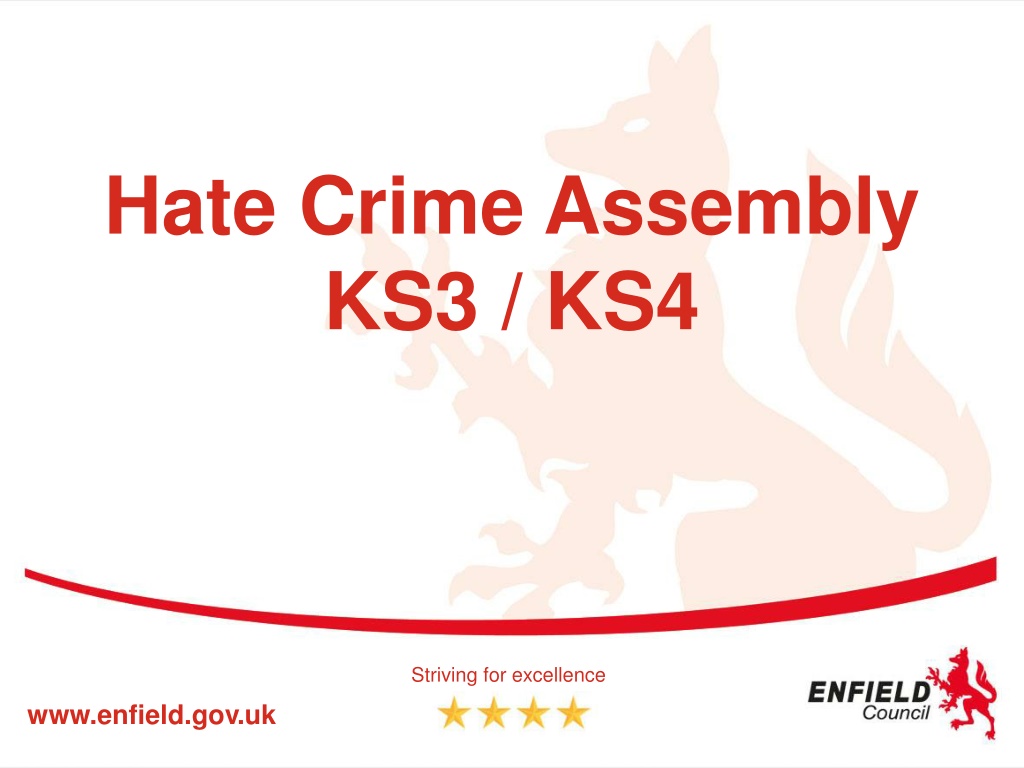







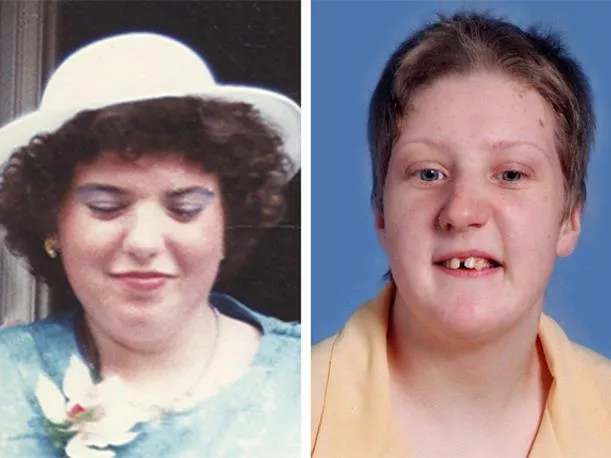

![Prevention and Combating of Hate Crimes and Hate Speech Bill [B.9B.2018]](/thumb/60513/prevention-and-combating-of-hate-crimes-and-hate-speech-bill-b-9b-2018.jpg)
